Honorary Lecturers
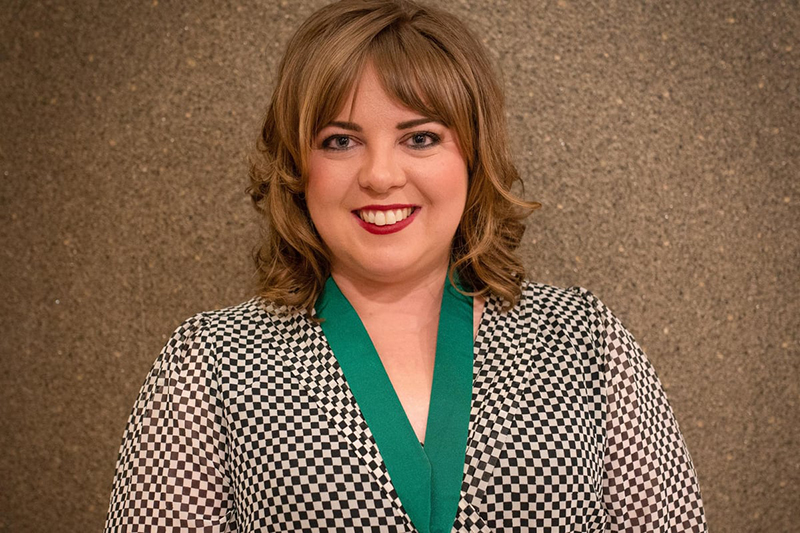
She is an innovative veterinary surgeon with extensive experience in equine veterinary practice, a special interest in equine welfare, sports medicine, pain management and rehabilitation.
Esther graduated from the University of Nottingham School of Veterinary Medicine and Science in 2012. In 2017 she established Shanaghan Veterinary Services which is Ireland’s first integrated veterinary referral service which includes veterinary acupuncture, veterinary chiropractic, pain management, rehabilitation, performance optimisation and laser therapy. In 2021, Esther became the first vet in Ireland to become a Certified Equine Rehabilitation Practitioner through the University of Tennessee. She is an experienced breeder and producer of Irish Sport Horses and has competed in various equestrian disciplines. Esther is passionate about improving the standards of equine welfare and regularly presents to stakeholders from the equine industry across Ireland. She also farms on a part-time basis, producing both commercial and pedigree sheep.
Esther has undertaken research which has been published in the Equine Veterinary Journal and is currently active in a range of research projects including collaborations with University of Bristol and Racing to Relate. She peer reviews for the Equine Veterinary Journal, regularly publishes a range of educational articles across mainstream media and is also a co-supervisor and placement provider for undergraduate, masters and PhD level research projects.
Esther is President of North Of Ireland Veterinary Association, President of British Veterinary Association Northern Ireland Branch, Member of CAFRE College Advisory Group, Member of UFU Next Generation Development Forum and Northern Ireland Representative UK Notifiable Equine Diseases Core Group.
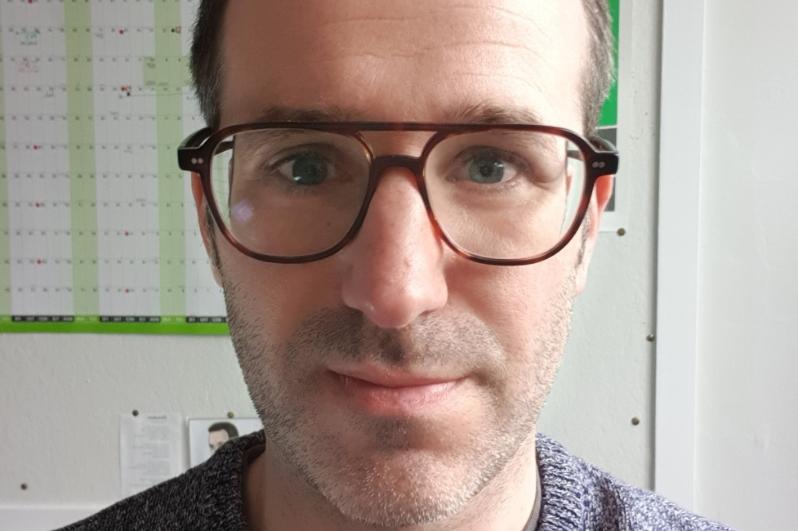
Ramon was previously Higher Scientific Officer within the Monogastric Research Group, 2016 -2020 and he held a two-year post-doctoral position at the Veterinary Faculty of Chulalongkorn University, Bangkok (Thailand), from 2015-2016.
Ramon’s current research interests focus on the interactions between health, nutrition and management, sow lifetime performance and health, and reducing carbon footprint of monogastric systems through implementing circularity processes, identifying alternative protein ingredients and reducing ammonia excretion.
Ramon has a degree in Veterinary Medicine and a PhD in Animal Production both from the Autonomous University of Barcelona (UAB). He has conducted research internships at the Melbourne University in Australia, Universidade Estadual de Londrina in Brazil, and Aarhus University in Denmark.

He works with start-ups, multinational retailers, FMCG businesses, international industry bodies and regulators, having built up over 35 years’ experience in the food retail and manufacturing industry.
In his 28 years with the retailer Sainsbury’s, Alec managed safety, quality, supplier performance, technical training, serious incidents, customer complaints, analytical assurance and the in-house accredited laboratory. Prior to Sainsbury’s, he worked in food manufacturing including the dairy and brewing industries.
Alec’s main areas of interest are food safety, quality and technical management in the food supply-chain with a particular focus on microbial, foodborne pathogens and their control.
Alec is the co-author of books on the practical control of foodborne pathogens including Salmonella, Listeria, C. botulinum, Campylobacter and E. coli. Alec sits on a number of influential industry and government committees and is currently a Non-Executive Board Director of Campden BRI, a Trustee of the Institute of Food Science and Technology and a Member of the Advisory Committee on the Microbiological Safety of Food.

She works within the Livestock Production Sciences Branch, where she leads the sheep-research programme. Aurélie joined AFBI in 2012 after doing a PhD in Zoology at University College Cork, in collaboration with National Parks and Wildlife Services.
Her current research focuses on developing and testing breeding and nutrition strategies to improve performance, health and efficiency of sheep-production systems, and reduce their environmental impact. This involves the use of precision technologies such as GPS and activity collars, automated feeding systems to record individual feed intake as well as respiration chambers to monitor greenhouse gas (GHG) emissions from ruminants.
Aurélie’s research interests also include the development and application of farm-level tools such as LCAs to model and quantify sustainability metrics of livestock production systems.
Aurélie is working closely with industrial partners such as farmers, levy boards and processors. She is a committee member of the National Sheep Association for NI since 2013 and chair of the Animal Welfare and Ethical Review Body for AFBI Hillsborough since 2014, to advise and review the use of animals under the Animals (Scientific Procedures) Act (ASPA).
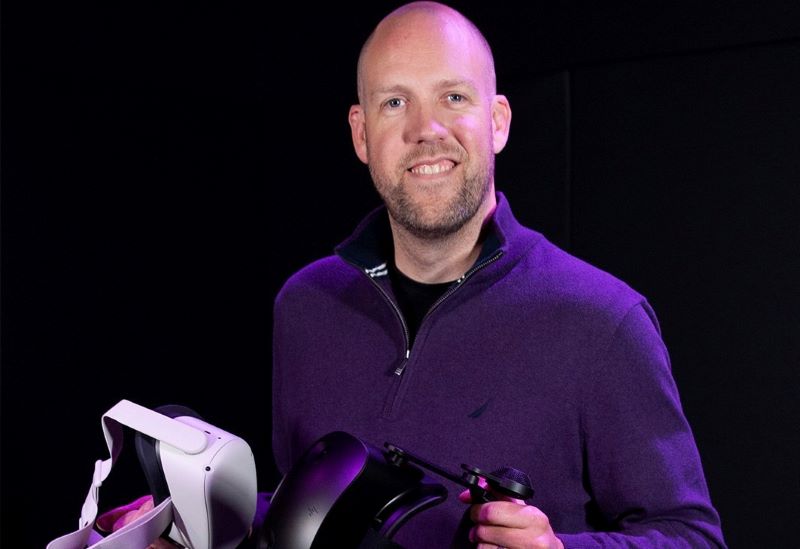
He is the Director of Graduate Environmental Programs, overseeing the Master of Environment and Sustainability (MES) program and the Graduate Specialization in Environment and Sustainability.
Paul is a Teaching Fellow at Western University. His research focuses on the impact of immersive technologies (eg. virtual reality, augmented reality, immersive video) on student motivation, engagement, and scientific literacy in undergraduate and graduate courses. Paul’s work has a particular focus on interdisciplinary environmental courses and engaging students with STEM subject matter related to sustainability and climate-change education.
Paul’s biological research revolves around the interaction between people and the marine environment and aims to promote ocean sustainability by improving management practices and conservation outcomes. To achieve this goal, he uses a diverse array of empirical and observational approaches to study the behaviour, movement, ecology and population dynamics of marine species, with a strong focus on species that are directly exploited or adversely affected by commercial and recreational fisheries.

He leads a team involved in delivering statutory and advisory science to protect plants, honeybees and the animal-feed chain in Ireland.
Richard’s areas of expertise includes mycology and forest pathology. His research focuses on forest pathology, pathogen detection, pathogen epidemiology, mycology and plant disease.
Associate Editor for the journal Biology And Environment, Richard is a member of the EPPO expert panel on mycology and on quarantine pests of forestry.
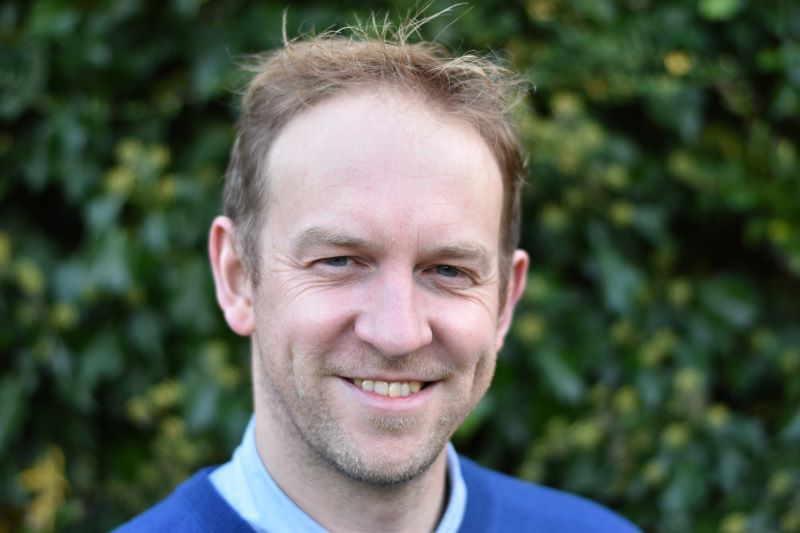
He was President of the British Veterinary Association and chaired the Animal Welfare Working Group of the Federation of Veterinarians of Europe, which represents veterinary associations from 40 European countries.
A Fellow of the Royal College of Veterinary Surgeons, Sean was a founder director of Vet Sustain, a community-interest company that is inspiring and supporting veterinary professionals to drive change towards a more sustainable future.
He has contributed to animal-welfare and conservation projects around the world and in 2017, he received the inaugural World Veterinary Association Global Animal-Welfare Award for Europe. In 2023 he received the JA Wight memorial award from the British Small Animal Veterinary Association for outstanding contributions to pet welfare.
Sean’s policy and research interests are in animal welfare and ethics, veterinary ethics, One Health and sustainability.
He is the author of Through A Vet’s Eyes: How to Care for Animals and Treat Them Better, which was selected as one of the Financial Times’ Best Summer Books of 2022.
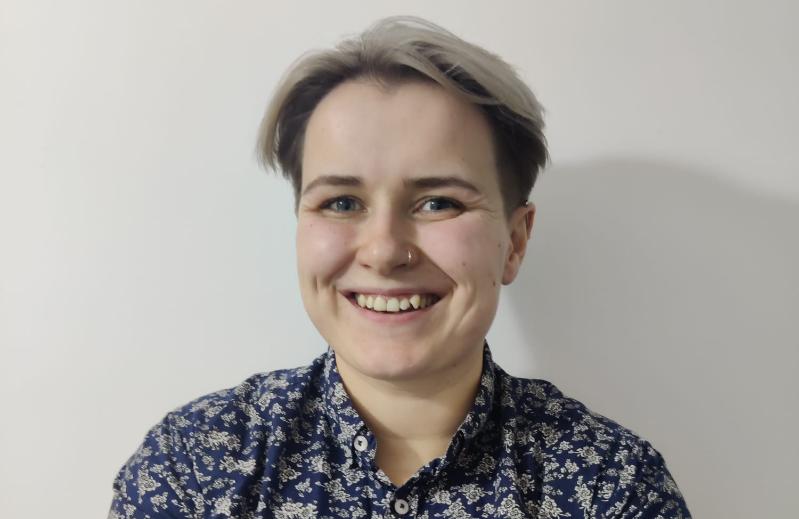
She leads on the contract management of nutrition surveillance data and dietary health surveys to inform nutrition policy development, implementation and evaluation in Northern Ireland.
Aoibh’s experience includes leading on projects investigating Northern Ireland food and drink purchasing, the FSAs Food and You 2 Survey and other consumer attitudes and purchasing surveys. She leads on the coordination of the Northern Ireland boosted sample of the National Diet and Nutrition survey with colleagues from the Department of Health and safefood and also works with colleagues from the Department of Health and Social Care to manage the Northern Ireland boost, representing Northern Ireland at UK Project Board meetings.
Aoibh represents the Food Standards Agency in Northern Ireland as an official government observer at Scientific Advisory Committee on Nutrition meetings and subgroup meetings.
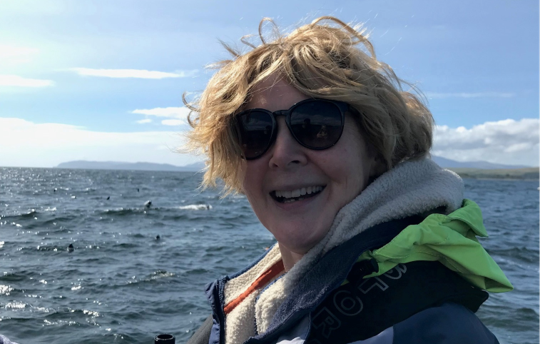
Having completed her PhD in Marine Biology at Queen's University Belfast in 1994, Heather became a Post-doc Deep Sea Biology at the University and later a staff member working as a Research Associate in AFBI, developing Shellfish Aquaculture. She is now the AFBI project lead providing scientific evidence to support the development of a sustainable shellfish aquaculture industry in Northern Ireland.
Heather's research interest has shifted from Deep-Sea Biology to applied environmental research. Her current post requires a muti-disciplinary approach to provide scientific evidence to support the sustainable development of the Northern Irish Shellfish Industry. Work areas focus on the limiting factors to the development of the industry including: food availability (development of carrying capacity models for the five sea loughs primarily for management of the industry, but recently expanded the model remit to investigate ecosystem health using chlorophyll as one of the indicators. She has been involved in the development of a series of catchment to coast coupled model frameworks for Lough Foyle, Carlingford Lough, Belfast Lough and Dundrum Bay); Space (Marine spatial planning); poor water quality (Investigating E.coli and other contaminants); disease and Invasive non-native species (INNS and their impact on the industry).
Heather is also the co-project lead on three Evidence and Innovation DAERA funded projects investigation: bathing water quality, climate change scenarios using ecosystem models and the more recent Sustainable Algae Northern Ireland (SANI) project, investigating the feasibility of seaweed aquaculture in Northern Ireland.

Lisa was also an Economist for the Central Bank of Ireland, a Risk Analyst for the Strategic Banking Corporation of Ireland at the National Treasury Management Agency of Ireland and an Assistant Professor in Finance at Queen’s University Belfast.
Lisa's research interests include sustainable finance, nature finance, biodiversity loss, climate change energy markets and environmental law. She has published research on sustainability-related topics in peer-reviewed international academic journals including Energy Economics and The Journal of Economic Behaviour and Organization.
Lisa is a contributor to several active research projects investigating the mobilisation of private finance to conserve biodiversity (funded by Research Ireland, Science Foundation Ireland, Horizon Europe and the United Kingdom Natural Environment Research Council, among others) and is a funded investigator on the Co-Centre for Climate + Biodiversity + Water project.
She has also contributed to the sub-working group on Policy Design for the Green Finance Effectiveness Framework produced by the Green Finance Platform, which is co-hosted by the United Nations Environment Programme, and was a visiting scholar in the Banque de France Climate Economics Unit in 2023. Lisa is a member of the All-Island Climate and Biodiversity Research Network (AICBRN) and the Climate Northern Ireland (NI) Policy and Research Panel.

Eureka has over 20 years of experience in teaching, research, and academic leadership. She has served as Senior Lecturer and Lecturer at the University of Ghana, Research Associate at the Centre for International Forestry Research and World Agroforestry (CIFOR-ICRAF), and Honorary Research Fellow at the School of Biological Sciences, University of Aberdeen.
Eureka's research focuses on environmental pollution, plant-soil interactions, and biodiversity conservation. She has led or contributed to studies on the food-chain impacts of mining and urban e-waste pollution, as well as the ex-situ conservation of selected crop wild relatives. Her ongoing collaboration with researchers at Queen’s University Belfast’s Institute for Global Food Security explores the mechanisms of accumulation of potential toxic elements in rice and other staple grains. This work integrates field studies, greenhouse experiments, and global datasets to inform policy on food safety and environmental health.
Eureka is a Commonwealth Scholar and holds a PhD in Plant Science from the University of Aberdeen, an MPhil in Environment and Development from the University of Cambridge, and both an MPhil and BSc in Botany from the University of Ghana. She is a member of the Ghana Science Association and the British Ecological Society. In 2023, she received the Leadership in Environment and Sustainability Award from the Africa Women’s Leadership Academy.
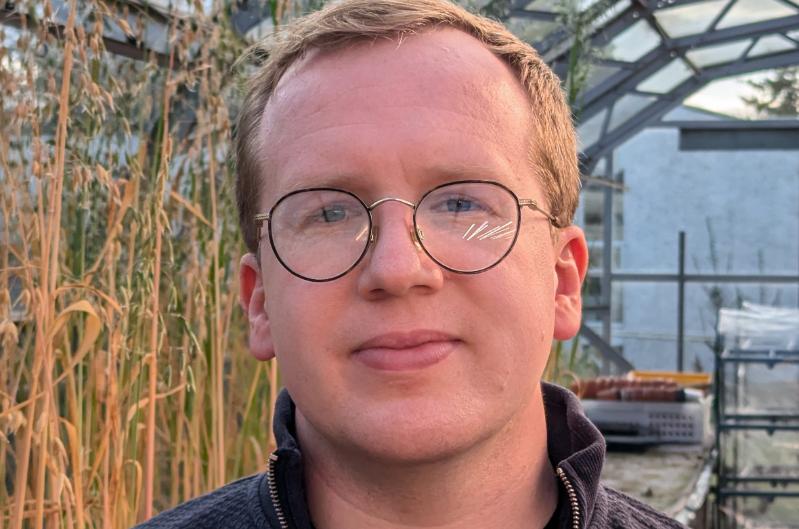
Adam completed a PhD in plant genetics based at the John Innes Centre followed by a Post-doc at the University of Leeds before joining AFBI in 2022.
Adam is now head of station at AFBI Crossnacreevy leading work programmes focused on Plant variety testing, seed testing and Agronomy. The station currently conducts an extensive programme of statutory testing for the Department of Agriculture, Environment and Rural Affairs (DAERA) in Northern Ireland, for the UK on an inter-departmental basis. It is the official seed testing station for Northern Ireland.
The stations research programmes seek to improve the exploitation of new varieties on-farm and advance knowledge on their biology and agronomy under Northern Irish growing conditions. It also conducts a number of contract research projects for industry. The lead scientists provide an expert knowledge service to DAERA, and to the local agricultural industry.
Adam has a particular interest in investigating plant responses to climate change, using genetics and agronomy in cereals and perennial ryegrass to understand the genes that underpin these responses.

Ciaran previously worked as a Postdoctoral researcher at Queens University Belfast, The University of Georgia, Oxford University and KU Leuven.
Ciaran aims to study the molecular mechanisms that mediate parasite survival and transmission in both the lab and field setting (including LMIC and endemic areas in the global south). He collaborates with various partners in the global south to study round- and flatworm parasites that infect people in (sub)tropical regions primarily.
Ciaran is focused on improving our understanding of the host-parasite and vector-parasite interactions. His research incorporates: (i) nematode neurobiology; (ii) host immunosurveillance; (iii) the development and application of reverse genetics methods for nematode parasites; and (iv) the use of multiple -omics techniques (including NGS and mass spectrometry) to explore parasite diversity and the molecular interface between parasite and host.
